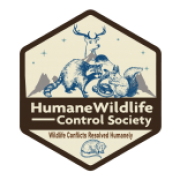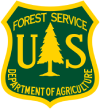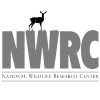Humane Wildlife Control in Charleston, SC
The Humane Wildlife Control Society recommends non-invasive solutions to resolve human-wildlife conflicts. This includes:
Determining if the issue needs to be addressed at all
Opting for preventative measures first
Opting for wildlife exclusion as opposed to trapping
If trapping is the only way to solve the problem do so humanely
The Humane Wildlife Control Society screens candidates prior to recommendation. Our process requires any company we recommend to meet the following criteria:
Is properly licensed in South Carolina for wildlife control
Carries appropriate business licenses and insurance
Complies with all South Carolina laws and regulations for wildlife control
Adheres to the humane principles listed above.
In Charleston, South Carolina we recommend Humane Wildlife Removal Charleston for professional wildlife control services. This is a private company that charges for their services.
Contact Information:
Wildlife Removal Charleston
843-325-2666
If you have any wildlife issues that can be handled by the state government agency for free, the South Carolina Wildlife Commission can help.
State Contact Information: 800-922-5431
The State Department of Agriculture may also be able to address your wildlife problem for no charge.
USDA Contact Information: (803) 734-2182
Balancing Animal Welfare and Community Needs in Wildlife Control Efforts in Charleston, South Carolina The Dual Imperative: Welfare and Community Charleston’s Unique Wildlife Context Research-Backed Humane Strategies Exclusion Over Elimination: Preventing wildlife entry is the gold standard, per the National Wildlife Control Training Program. Sealing homes with steel mesh or concrete—raccoons can’t chew through it—stops intrusions without harm. One-way exclusion devices, validated by wildlife studies, allow bats or squirrels to exit attics safely, avoiding the ethical quandary of killing or orphaning young. In Charleston, where humidity rots wood seals, durable materials are non-negotiable. Challenges in Striking the Balance Benefits of a Balanced Approach
Introduction
Charleston, South Carolina, a historic coastal city renowned for its charm, thrives where urban development meets the Lowcountry’s marshes, rivers, and barrier islands. This convergence fosters a rich wildlife population—raccoons, squirrels, bats, alligators, and wading birds—that frequently interacts with human spaces, from downtown’s colonial homes to suburban enclaves near the Ashley River. These encounters bring benefits, like ecological diversity, but also challenges: property damage, health risks (e.g., rabies, per SCDHEC data), and safety threats. Balancing animal welfare with community needs in Charleston’s wildlife control efforts requires a nuanced approach—humane, research-backed strategies that protect residents while respecting the intrinsic value of wildlife. This essay examines the tensions, solutions, and ethical imperatives shaping this balance in Charleston, offering insights for residents, policymakers, and educators.
Wildlife control in Charleston is not a simple task of removal—it’s a delicate equilibrium. Community needs are pressing: raccoons raid trash in the French Quarter, alligators wander into West Ashley yards, and bats roost in historic attics, potentially spreading histoplasmosis (CDC data). These incidents threaten public health, safety, and economic stability—tourism and property values hinge on a clean, safe environment. Yet, animal welfare is equally critical. Charleston’s wildlife—bats controlling pests, opossums eating ticks—plays ecological roles vital to the Lowcountry’s marshes and forests. Research from the Humane Society of the United States underscores that killing animals disrupts ecosystems, often leading to population rebounds that worsen conflicts. Ethical control, then, must safeguard humans without sacrificing animal well-being, a principle enshrined in South Carolina’s wildlife ethos.
Charleston’s subtropical climate and coastal geography amplify human-wildlife interactions. Warm, humid summers sustain year-round activity—SCDNR notes peak raccoon and snake sightings in June—while mild winters offer no respite, unlike northern cities. Tidal marshes and rivers—the Cooper, Ashley, and Wando—connect urban zones to habitats like Francis Marion National Forest, funneling wildlife into neighborhoods like Mount Pleasant or James Island. Historic homes, with aging roofs and unsealed crawlspaces, are prime targets, while new developments near wetlands displace animals into human spaces. Alligators, a protected species under SCDNR, exemplify this tension: their presence in retention ponds or golf courses thrills tourists but alarms residents. Charleston’s control efforts must address these dynamics thoughtfully, blending community protection with ecological sensitivity.
Balancing these needs relies on humane, evidence-based methods:
Relocation with Restraint: When animals must be moved, live trapping—using secure cages with species-specific bait (e.g., fish for raccoons)—is humane but tightly regulated. SCDNR prohibits relocating rabies vectors (raccoons, bats, skunks) beyond property boundaries due to disease risks—Charleston County reported 15 rabies cases in 2022 (SCDHEC). Licensed operators relocate only when safe, releasing animals like opossums or squirrels within 5 miles to familiar habitats, ensuring survival while minimizing community exposure.
Habitat Management: Reducing attractants aligns welfare and safety. Charleston County Code (Chapter 11) mandates secure trash storage—locking lids cut raccoon visits by 60%, per Wildlife Society data. Clearing overgrown lots and removing pet food deter skunks and foxes. For alligators, SCDNR’s “Living with Alligators” program educates residents to avoid feeding them, preventing habituation that leads to removals.
Legal and Ethical Foundations
South Carolina’s Wildlife Management Laws (Title 50) and Charleston ordinances frame this balance. Lethal control is a last resort—SCDNR permits it only for immediate threats (e.g., aggressive alligators), requiring documentation and justification. Bats, protected for their pest-control role, can’t be harmed without DWR approval due to declines from white-nose syndrome. Charleston’s Animal Control enforces humane treatment, with fines up to $1,087 for cruelty violations (City Code 5-2). Ethically, the American Veterinary Medical Association advocates non-lethal methods, noting they reduce suffering and align with public values. Charleston’s approach reflects this—prioritizing exclusion and education over destruction, except where safety is imminently at risk.
Tensions arise. Residents demand swift action— alligator sightings near Folly Beach spark calls for removal—but SCDNR data shows relocation stresses animals, with 30% mortality rates for displaced alligators (Journal of Wildlife Management). Bats in historic homes like Rainbow Row test patience; exclusion takes time, yet killing them risks ecological loss and legal penalties. Cost is another hurdle—professional sealing averages $500-$1,500 (Humane Society estimates), straining low-income households. Public perception complicates matters—some view humane methods as “soft,” unaware that lethal control often fails long-term, per U.S. Fish and Wildlife Service studies. Charleston must bridge these gaps with education and policy support.
Community Safety: Humane methods eliminate health risks (e.g., rabies, hantavirus) without toxic fallout, protecting families and pets.
Animal Welfare: Exclusion and careful relocation preserve lives—bats eat 1,000 insects nightly (Bat Conservation International), benefiting Charleston’s mosquito-heavy summers.
Sustainability: Maintaining wildlife supports tourism—birdwatchers flock to Magnolia Plantation—while avoiding ecosystem collapse from over-culling.
Cost Efficiency: Prevention avoids repeat infestations, saving thousands in repairs over time.
Practical Steps for Charlestonians
Assess Vulnerabilities: Check homes for entry points—cracks, vents, or loose siding—before spring or fall peaks.
Act Early: Use exclusion before animals settle; contact SCDNR’s Nuisance Wildlife Team (843-953-9300) for guidance, not free removal.
Educate Neighbors: Share prevention tips—secure trash, avoid feeding wildlife—to reduce community-wide conflicts.
Hire Responsibly: Choose SCDNR-licensed operators committed to humane practices—verify credentials to avoid scams.







